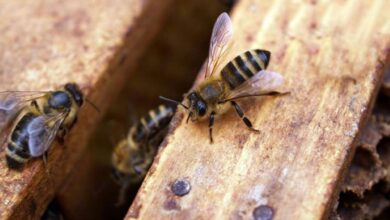Dominican Republic: new president in the midst of the pandemic
The Dominican Republic became the first country in Latin America to hold elections as the region faces the Coronavirus pandemic.

With elections during the pandemic, the Dominican Republic elected Luis Abinader as president. / Photo: twitter.com/luisabinader
LatinAmerican Post | Juliana Suárez
Listen to this article
Leer en español: República Dominicana: nuevo presidente en medio de la pandemia
Luis Abinader, who until now was the main opposition leader of the Danilo Medina government, became the next president of the republic with 53.11% of the votes. This victory means a change of government party after 16 years in which the center-left Dominican Liberation Party (PLD) was.
Today, Abinader comes to represent the Social Democratic Modern Revolutionary Party (PRM) as the country faces more than 37,000 coronavirus infections and 800 deaths. This was a decisive factor for what will be the next presidency since in the new period it will be necessary to focus on the recovery of the economy and the promotion of social programs that benefit a country that is mostly middle class.
Ganamos, pero ganamos todos . Llegamos, pero no para que nos aplaudan , sino para servirte. ¡Gracias por confiar en nosotros! pic.twitter.com/wSNIgMlUPJ
— Luis Abinader (@luisabinader) July 6, 2020
According to political scientist Rosario Espinal, in dialogue with CNN, it is possible that the perception of corruption by the Dominican middle class was a determining factor in choosing to change the government and not continue with the PLD. This, at a critical moment for the economy, would be essential to lift the country after having been one of the fastest-growing in the region in the last 10 years. Espinal also spoke with the BBC and affirmed that "everything would be easier if there were simply the problems left by this government of institutionality, corruption, and weakened justice … But unfortunately, I fear that they will be overshadowed by those who will bring the pandemic", thus evidencing the influence of the pandemic on the results.
Read also: The new airport that was built in Mexico by their army
Despite the possible discontent of a large part of the population vis-à-vis the party that had been in power for 16 years due to the perception of corruption that has been increasing, it was this that managed to boost the country economically until it became one of which has had the most growth. For this reason, Luis Abinader's work will have to combine efforts to get out of the coronavirus crisis and continue along the same lines that past governments did.
Among the proposals, Abinader focused on economic and social issues, seeking to boost employment with the promise of creating 600,000 jobs, reverse labor informality, empower women and create an agency that allows better management of funds in public transport to optimize it. These are some of the proposals that go hand in hand with the economic commitment that it has with the country and that the impact of the pandemic should be reinforced.
Likewise, despite the difficulties brought about by the pandemic, he continued the last months of his career towards the presidency with trips around the country presenting his campaign while following biosafety protocols. In this process, Abinader himself and his wife became infected with coronavirus, news that he himself made known through his social networks with a message in which he promised transparency in front of everything that happened to him, including his state of health.
Le hablo a los dominicanos. https://t.co/GgG1aHfflm
— Luis Abinader (@luisabinader) June 11, 2020
In these elections, another 264 authorities were also voted, which included the parliamentary elections that were due to take place in February and were postponed.
Pandemic elections
The elections came just a day after the Dominican Republic presented its highest number of infections in one day, 1036, so going to the polls was a decision that involved strict biosafety protocols. The elections came at the time of greatest risk and crisis according to the Ministry of Health and while the country is on orange alert.
7 and a half million Dominicans were empowered to vote, so the polling places had to be prepared in order to comply with social distancing and other prevention measures. People had to go to the polling places without companions, maintain social distance between themselves and also with the juries, the use of face masks was mandatory and they recommended the use of antibacterial gel. Likewise, in the voting centers, there was the possibility of washing hands before and after leaving the room and the entrance to the precincts was ordered and accounted for to avoid exceeding the maximum capacity, taking into account a minimum of 2 meters away.
Also read: Good Actions Amid the Pandemic
The face-to-face vote of citizens in other parts of the world was also taken into account, taking into account the restriction measures that each country had.
This, like Russia that also voted in the past days, can function as a base example for countries that had to postpone their elections due to the pandemic. Among them, Bolivia, which has spent more than 6 months with the interim government of Jeanine Áñez while new votes can be held. The same will happen with the United States, who in November must go to the polls to elect the next president.





